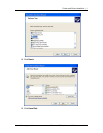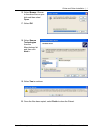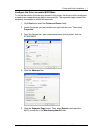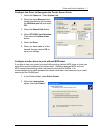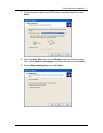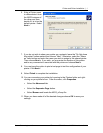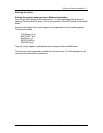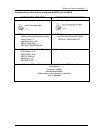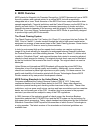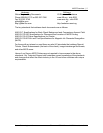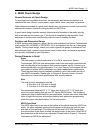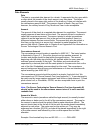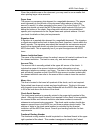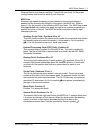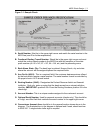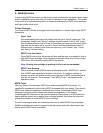
Source Technologies, LLC ST9630 Secure MICR Printer User’s Guide
20
2. MICR Overview
MICR stands for Magnetic Ink Character Recognition. All MICR documents have a MICR
line with numbers and symbols printed in a unique MICR font with magnetically
chargeable ink or toner. Each character of the MICR font has a unique waveform when
sensed magnetically. Financial institutions and the Federal Reserve use the MICR line to
identify and sort checks. The high-speed automated processing of checks and other
financial documents depends on the accuracy and the integrity of the data printed in the
MICR line. Your new Source Technologies Secure MICR Printer is specifically designed
to produce high quality MICR documents.
The Check Clearing System
The Check Clearing for the 21st Century Act (Check 21) was signed into law October 28,
2003. Prior to Check 21, checks traveled through the bank’s high speed reader/sorter
equipment an average of near seven times in the Check Clearing process. Some checks
could be read up to 30 times or more by these machines.
In today’s environment high and low speed check readers can capture a picture or
image of the check allowing for images to be exchanged between financial institutions,
the Federal Reserve, and other clearing houses. This new law, Check 21, defines what
is called a “Substitute Check”, and removed barriers that existed in converting physical
checks to check images for clearing. The original physical check can now be truncated
by the first institution that converts the check to image. The original check can now be
destroyed.
United States and International MICR Standards still require the printed MICR line
information to be of the highest quality and durability. Additionally, issues related to
check fraud continue to place high importance on print quality. For these reasons, the
quality and durability of information printed with Source Technologies Secure MICR
Printers remains a key new product development criterion.
MICR Printing Standards in the United States Today
Congress established the Federal Reserve System (FRS) in 1913. Today most
commercial banks in the United States belong to the FRS. Many other depository
institutions provide banking and checking account services to the public. These other
institutions, such as some credit unions, savings and loan associations and non-member
banks, are not formally part of the FRS. However, they have access to the payment
services it provides and are subject to many of the FRS regulations.
In 1958, because of the explosive growth of check usage, the American Bankers
Association selected the E-13B MICR font and the MICR system as the technology for
high-speed check processing. Today, check standards are determined by the Accredited
Standards Committee X9AB Payments Subcommittee of which Source Technologies is
a voting member. The latest versions of the standards and technical guidelines are
available from:
MICR Overview | 2



